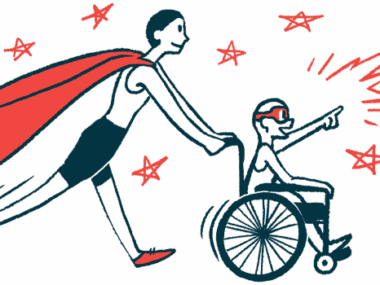I’m constantly adapting to the needs of my child with Dravet
When an early and cold soccer game makes for a meltdown, we switch things up
Written by |

I wrote in my last column about how I have to allow life with Austen, my 7-year-old daughter with Dravet syndrome, to ebb and flow in keeping with her needs. This demand often requires me to put my own wants aside. The perfect example of it came on the last Saturday in February, when my children were scheduled to have their first soccer games of the season.
The day started off rough, which was mostly my fault. I forgot to tell Austen the night before that the next morning would be different from our usual Saturday morning routine, and I didn’t prepare her accordingly. Although Austen’s game wouldn’t start until 12:15 p.m., her brother’s game started at 9 a.m., so we had to get there early. This made Austen feel rushed, and she wasn’t in a good mood. That’s not the best mix when you have a child with autism.
Then Austen found out her dad wasn’t going to be able to come to the games because he was sick. Additionally, the weather during her brother’s game was cold, muddy, and rainy.
All of these things left Austen overwhelmed, anxious, and overstimulated. She soon began to cry and eventually had a full meltdown. She didn’t get much better as the game went on.
I could’ve told her to get it together, that we made a commitment and she needed to tough it out. But I didn’t. When I realized that her attitude wasn’t getting better, I decided we’d leave after her brother’s game instead of staying for hers. Instead, I decided, we’d go out to breakfast, run a few errands, and get back home to warm up and rest.
I’d love to say that Austen’s behavior suddenly turned a corner once we left the field, but that wasn’t the case. She cried at the restaurant where we went for breakfast, and she accidentally spilled her water on the floor. She cried in T.J. Maxx, even though I let her buy new goggles for our once-a-week swim at the gym. And she cried when we got home because she was simply frustrated and done with the day. Even when I allowed her to sit down with her iPad, the tears didn’t turn off as fast as usual.
That Saturday was not Austen’s best day ever, by far. But it also wasn’t her worst. Yes, she cried all day. She yelled, screamed, and obsessed over tiny things. But she didn’t have a seizure.
And the next Saturday was better. We made it to her game, even though she cried through the first part of it. She made it onto the field and played with her friends.
We’ve learned enough about Dravet syndrome and autism over the years to pick our battles when these moods occur. She knows that we love her just as much on her bad days as we do on her good ones. And she knows that we realize when she’s struggling and will try to help her through it.
Note: Dravet Syndrome News is strictly a news and information website about the disease. It does not provide medical advice, diagnosis, or treatment. This content is not intended to be a substitute for professional medical advice, diagnosis, or treatment. Always seek the advice of your physician or other qualified health provider with any questions you may have regarding a medical condition. Never disregard professional medical advice or delay in seeking it because of something you have read on this website. The opinions expressed in this column are not those of Dravet Syndrome News or its parent company, Bionews, and are intended to spark discussion about issues pertaining to Dravet syndrome.







Leave a comment
Fill in the required fields to post. Your email address will not be published.